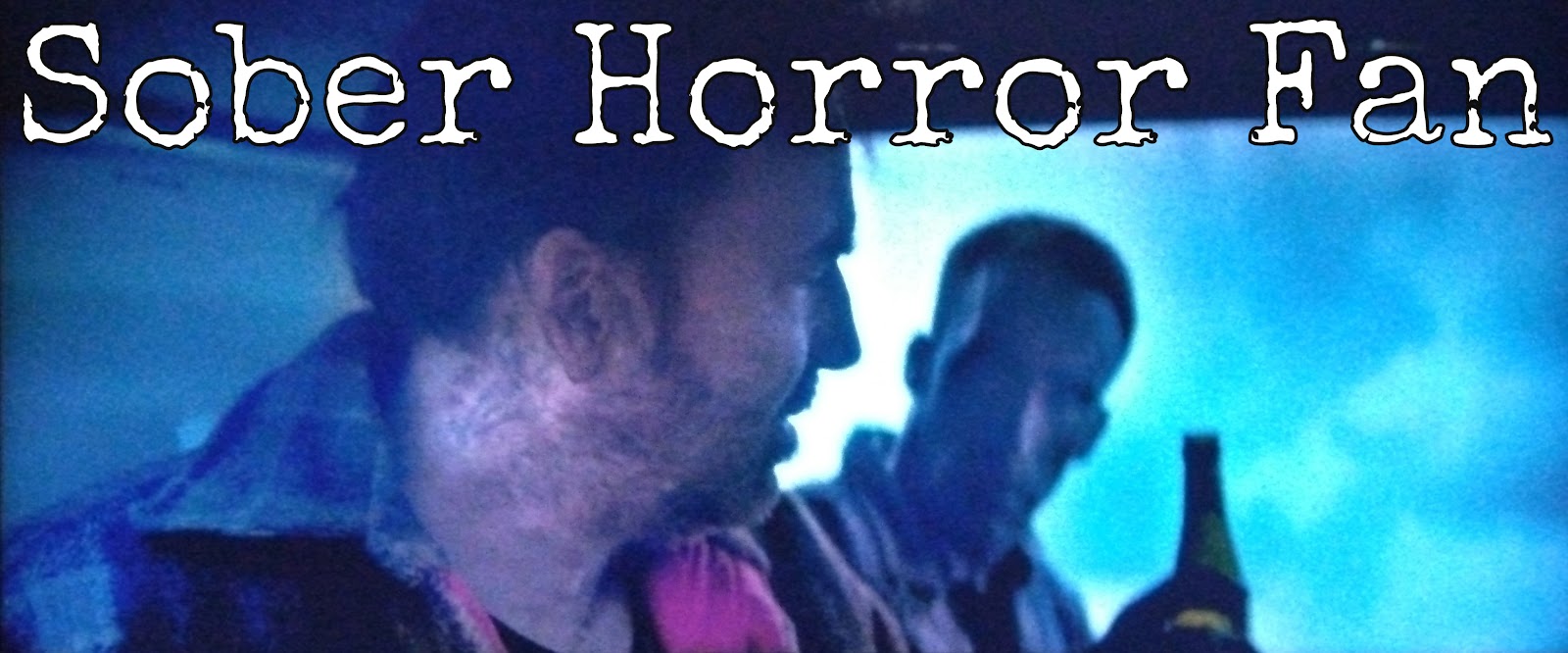Mumsy, Nanny, Sonny and Girly (1970)
Also known simply as Girly in the US, I first heard of this film’s existence a few months ago via the excellent Bedabbled
fanzine, which is devoted to British cult and horror cinema. The film
was discussed in such glowing terms—and sounded so strange—that I felt I
had to see it. Unfortunately, however, this is not a film that has ever
really been very widely available, and I ended up having to pay a
premium for an out-of-print US blu-ray on eBay.
 The
plot revolves around a bizarre ersatz “family,” who spend their days
role-playing the titular mother, daughter, son, and nanny (there is no
father). They inhabit a secluded English manor house, where they amuse
themselves by luring in men (“new friends”), mainly through the wiles of
“girly,” the teenage daughter. Once lured to the house, the victims are
forced to take part in the game being played by its inhabitants,
generally resulting in their abuse and eventual murder, which is
recorded on film for the amusement of the family. Sound weird? It is!
The
plot revolves around a bizarre ersatz “family,” who spend their days
role-playing the titular mother, daughter, son, and nanny (there is no
father). They inhabit a secluded English manor house, where they amuse
themselves by luring in men (“new friends”), mainly through the wiles of
“girly,” the teenage daughter. Once lured to the house, the victims are
forced to take part in the game being played by its inhabitants,
generally resulting in their abuse and eventual murder, which is
recorded on film for the amusement of the family. Sound weird? It is! Considering
some of the names involved, I’m surprised that I have never heard of it
before now. It was directed by Freddie Francis, who directed a number
of films for Hammer and Amicus and also worked as cinematographer on
such well respected productions as The Innocents (1961) and David Lynch’s The Elephant Man (1980) and Dune
(1984). The role of Girly is played by Vanessa Howard who appeared in
several “swinging London” comedy films and also in a few horror movies,
including the Peter Cushing vehicles The Blood Beast Terror (1968) and Corruption
(1968). And the male lead—a “new friend” who seeks to gain the upper
hand against the family is played by 70s British TV regular Michael
Bryant, mainly known to me for his role in Nigel Kneale’s The Stone Tape (1972). There is also a cameo by Hammer regular Michael Ripper (a mark of quality if ever there was one!).
Considering
some of the names involved, I’m surprised that I have never heard of it
before now. It was directed by Freddie Francis, who directed a number
of films for Hammer and Amicus and also worked as cinematographer on
such well respected productions as The Innocents (1961) and David Lynch’s The Elephant Man (1980) and Dune
(1984). The role of Girly is played by Vanessa Howard who appeared in
several “swinging London” comedy films and also in a few horror movies,
including the Peter Cushing vehicles The Blood Beast Terror (1968) and Corruption
(1968). And the male lead—a “new friend” who seeks to gain the upper
hand against the family is played by 70s British TV regular Michael
Bryant, mainly known to me for his role in Nigel Kneale’s The Stone Tape (1972). There is also a cameo by Hammer regular Michael Ripper (a mark of quality if ever there was one!). Despite
the assembled talent, however, it is, in a way, no surprise that the
film sadly slipped into obscurity very soon after its release, given its
all-round strangeness and indefinability. For it is indeed a difficult
film to digest—or categorize. It is often referred to as a “comedy
horror” film, and there certainly is plenty of humor in it, but boy is
it black. It is also highly transgressive and subversive—poking holes in
social mores and featuring undercurrents of incest and overcurrents of
violence. Weirdly, despite its inherent British-ness, the film found
some degree of success in the US, where it was marketed as an
exploitation movie. It is often compared to Jack Hill’s marginally
better-known Spider Baby (1967), and I can see why.
Despite
the assembled talent, however, it is, in a way, no surprise that the
film sadly slipped into obscurity very soon after its release, given its
all-round strangeness and indefinability. For it is indeed a difficult
film to digest—or categorize. It is often referred to as a “comedy
horror” film, and there certainly is plenty of humor in it, but boy is
it black. It is also highly transgressive and subversive—poking holes in
social mores and featuring undercurrents of incest and overcurrents of
violence. Weirdly, despite its inherent British-ness, the film found
some degree of success in the US, where it was marketed as an
exploitation movie. It is often compared to Jack Hill’s marginally
better-known Spider Baby (1967), and I can see why.It's
interesting to note the role that alcohol plays in the film. In an
early scene, the “children” use a bottle of whisky to lure an alcoholic
victim into their game, and then back to the manor house where more
“drinkie” is promised. This ultimately proves fatal for him. And then
later, an inebriated male prostitute is manipulated into the game by
making him believe he murdered his client in a drunken stupor. I don’t
think the film intended to make any comment on alcohol use, but it makes
me reflect on the way alcohol served as a kind of bribe for me too—a
bit of release as a reward after a hard day’s work. As well as the way
that it can be used to help us put up with what would otherwise be
intolerable situations.






Comments
Post a Comment